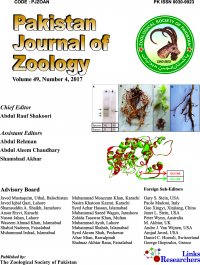HLA System and its Participation in Recurrent Pregnancy Loss
HLA System and its Participation in Recurrent Pregnancy Loss
Laiba Ajmal1, Sidra Ajmal2, Maleeha Ajmal3, Gul Nawaz3, Rabail Hassan Toor4, Hooria Younas1, Tassaduq Hussain Sheikh5 and Raazia Tasadduq1*
ABSTRACT
A successful pregnancy is a biological paradox as the maternal immune system accepts and tolerates the semi allogeneic fetus. Continued tolerance of the fetus relies on an optimal immune privileged environment that allows the developing fetus to avoid recognition and rejection. Any dysregulation in the crosstalk between the host’s immune system and the fetal allograft would result in rejection of the fetus, subsequently leading to miscarriages. The functioning of human leukocyte antigen (HLA) system at the maternal fetus interface plays a pivotal role in acceptance of the fetus. Alterations in the modulated activity of HLA system influence the fetal tolerance. Therefore, this review will provide an insight on how the working of HLA at the maternal fetal interface contributes towards recurrent pregnancy losses (RPL). Antigen hiding is a phenomenon that contributes towards immune evasion by the fetal cells as the placental barrier lacks HLA expression. However, the HLA molecules that are expressed by the extravillous trophoblast modulate maternal immune activity towards a protective function, leading to acceptance of the fetus. Further studies encompassing the functioning of HLA system at maternal fetal interface would prove to be beneficial for the affected couples.
To share on other social networks, click on any share button. What are these?









